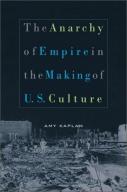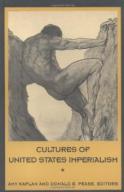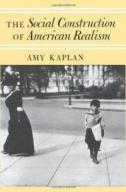Amy Kaplan
Edward W. Kane Professor of English
Working in the interdisciplinary field of American studies, Amy Kaplan focused in her teaching and scholarship on the culture of imperialism, comparative perspectives on the Americas, prison writing, the American novel, and mourning, memory, and war.
A past president of the American Studies Association, Kaplan received her Ph.D. from The Johns Hopkins University, with a specialty in late-nineteenth-century American literature. Her first book was The Social Construction of American Realism (U Chicago P, 1988). She co-edited, with Donald Pease, Cultures of U. S. Imperialism (Duke, 1993). In The Anarchy of Empire in the Making of U.S. Culture (Harvard UP, 2002) Kaplan showed how imperial expansion abroad—from the US-Mexico War of 1848 to the First World War—profoundly shaped key elements of American culture at home. She received an NEH Fellowship and the Norman Forster prize for the best essay in American Literature in 1998 for "Manifest Domesticity." In 2011-12 she was a fellow at Princeton's Institute for Advanced Study.
A wide-ranging critic of contemporary American culture and policy, Kaplan published essays on the place of Guantanamo Bay in American history, the discourse of “homeland security” in response to 9/11, analogies between the American and Roman Empires, academic life in Palestine in the Chronicle of Higher Ed, as well as articles on Mark Twain and Herman Melville. Her final book, Our American Israel: The Story of an Entangled Alliance, was published by Harvard UP in 2018. Amy Kaplan died on July 30, 2020.

 Department of English
Department of English




